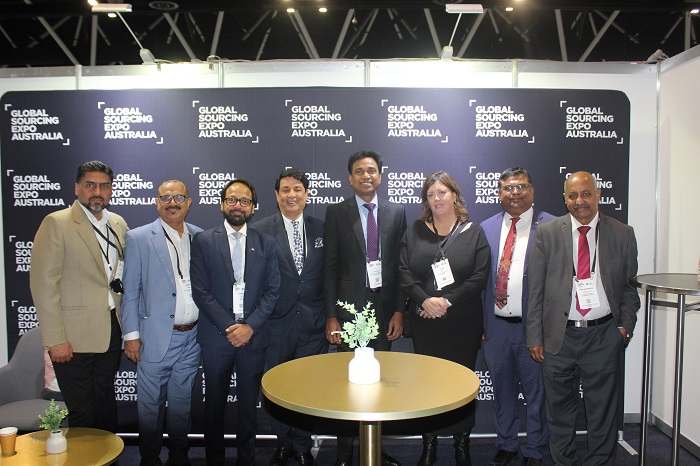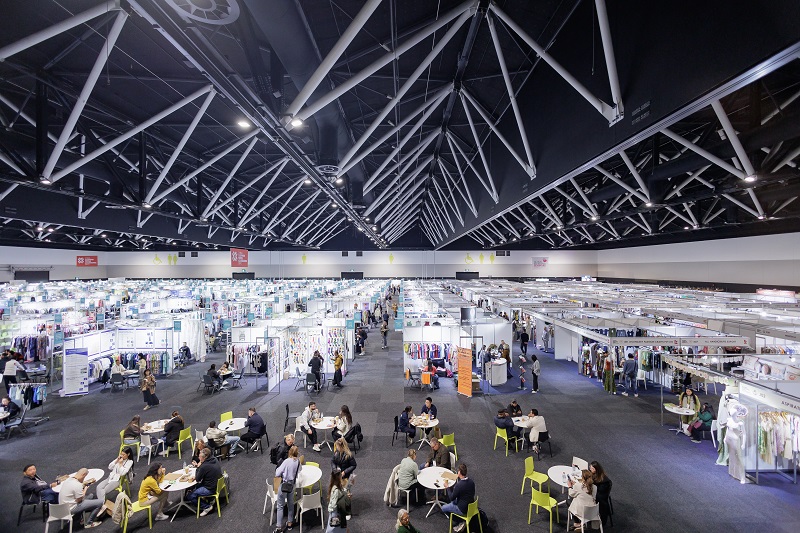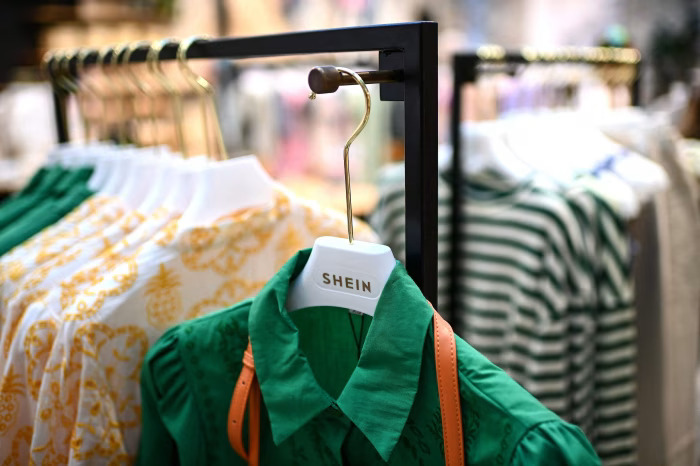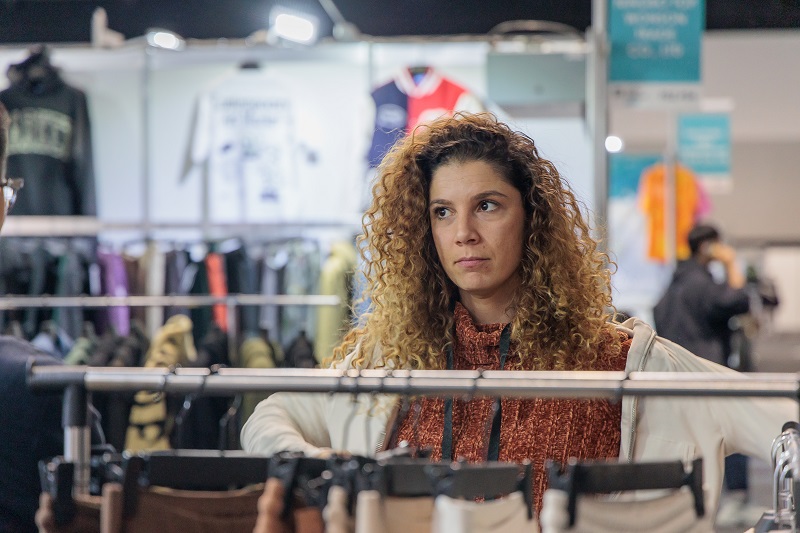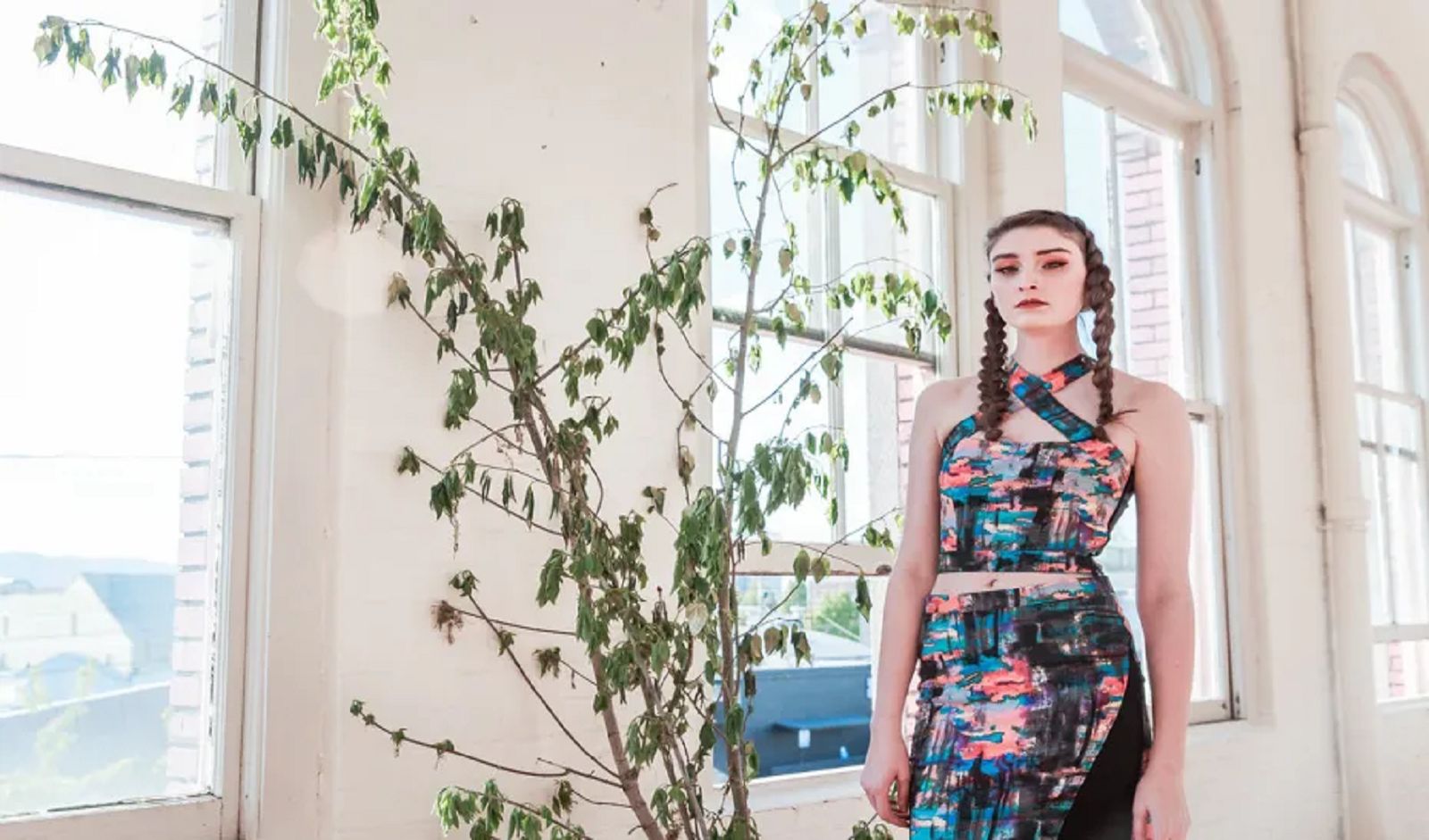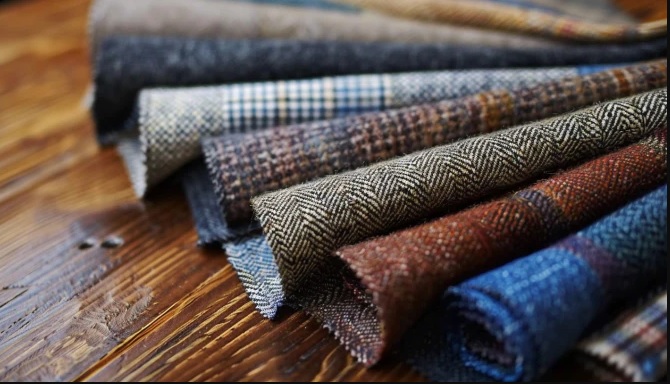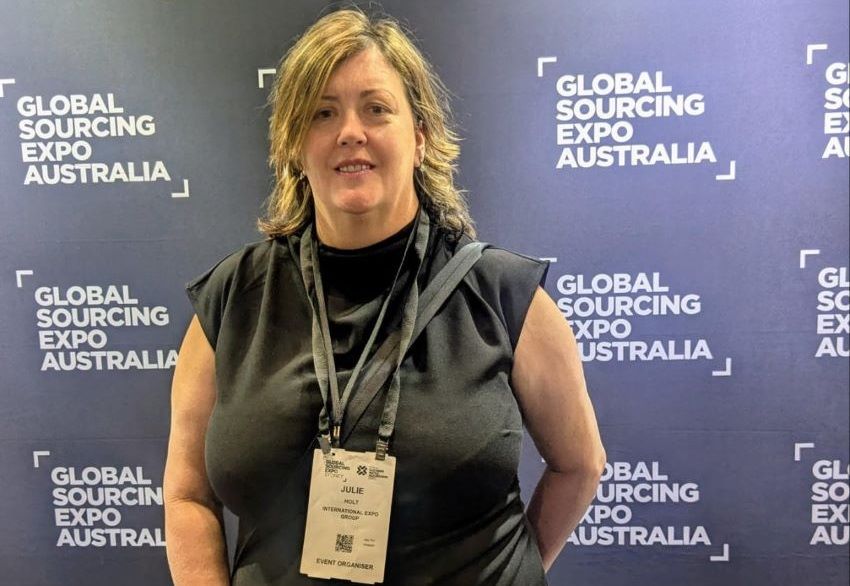FW
Increasing by €100 million from the previous year, the Finnish consumer market for textiles and fashion grew to €5.5 billion in 2023, according to Statistics Finland. Of the two, clothing remained the dominant category, accounting for 3.7 per cent of overall consumer spending and over €4 billion of the total market value.
Footwear emerged as a fast-growing segment, with consumers spending nearly €1 billion annually. Over the past two years, Finns have increased their footwear expenditures by €200 million, highlighting a shift in consumer priorities. On average, each Finn spent €175 on footwear in 2023, a notable rise from €115 in 2020. Women’s footwear continued to dominate this category, representing roughly half of the total expenditure.
While spending on clothing and footwear increased, home textiles experienced a slight decline, falling to €529 million in 2023 from €544 million the previous year. Despite this drop, long-term trends indicate growth, supported by the home decor boom during the COVID-19 pandemic. On average, Finns spent €94 on home textiles in 2023, with bedding accounting for €51 per person.
Only 14 per cent of spending on fashion and textiles went to domestic brands, highlights Ville Salonen, Economic and Statistical Expert, Suomen Tekstiili & Muoti ry.
Women’s clothing remains the most purchased category, accounting for €352 per person in 2023, compared to €196 spent on men’s clothing. Overall, the average Finn spent €720 on clothing, a modest increase from €709 in 2022. However, spending has yet to reach the pre-pandemic level of €770 per person recorded in 2019.
Saitex, a global leader in sustainable denim manufacturing, has unveiled its 2023 Impact Report, showcasing strides in circular production, innovation, and social responsibility. Known as ‘The World’s Cleanest Denim Factory,’ Saitex is setting new benchmarks in responsible apparel production through partnerships with brands like Zara, Everlane, and Polo Ralph Lauren.
The report outlines progress in key areas, including the adoption of cutting-edge technologies and regenerative practices. Since 2021, Saitex’s Smart-Indigo technology has achieved a 90 per cent reduction in carbon dioxide emissions, a 70 per cent decrease in energy usage, and a 30 per cent reduction in water consumption. Additionally, 25 per cent of fabrics produced at its Vietnam-based mill are now Cradle to Cradle Certified Gold, underscoring its commitment to sustainable innovation.
CEO SanjeevBahl emphasized the importance of transparency and accountability in Saitex’s journey toward circularity, highlighting the need to share both achievements and areas needing improvement to drive meaningful change.
Beyond environmental impact, Saitex’s Rekut program has successfully integrated 98 per cent of employees from marginalized backgrounds into its workforce, reflecting the company’s dedication to social equity.
Founded in 2001, Saitex operates facilities in Vietnam, Los Angeles, and a dedicated upcycling division, Stelapop. Its smart factories leverage AI, robotics, and IoT, enhancing speed-to-market, traceability, and data-driven decision-making.
Through continuous innovation and partnerships with global certifying bodies like Bluesign and GOTS, Saitex aims to redefine denim manufacturing, pushing the boundaries of what sustainable production can achieve.
Ethiopia’s vast potential for companies in the textiles and garments industry has been steadily growing, says Zeleke Temesgen, Investment Commissioner, Ethiopia.
Starting today, the Ethiopian Invesment Commission has organised Global Linen Textile Forum 2024 in Addis Ababa. The forum brings together participants from 15 countries. Co-hosted by Kingdom (Ethiopia) Linen PLC, Kingdom Holdings, the China Bast & Leaf Fibres Textile Association, and The Alliance for European Flax-Linen & Hemp, the forum marks a major milestone for Africa’s linen sector.
According to Temesgen, with over 70 per cent of its 120 million people under 30, Ethiopia offers a young workforce, abundant natural resources, and sizable arable land suitable for textile raw materials. Boosted by its strategic position in the global economy, improved capital productivity and competitive labor market, the country is emerging as the new regional sourcing destination for textile and apparel.
Foreign direct investment in Ethiopia’s textile sector has increased from $16 million in 2015 to over $500 million today, with projections of exceeding $1 billion by next year. Strategically located with robust infrastructure, including the Addis Ababa-Djibouti railway and Bole International Airport as it is Africa’s busiest cargo hub, the East African nations provide easy access to global markets. The government has also established Special Economic Zones (SEZs) with a stable power supply to support export-focused manufacturing, he indicated.
Since 2018, the Ethiopian government has implemented a series of reforms to create a more attractive environment for private sector growth. These include liberalising investment opportunities, easing restrictions on foreign investments, and ratifying special economic zones.
Additionally, Ethiopia is in the process of joining the World Trade Organisation (WTO) and actively participates in the African Continental Free Trade Area (AfCFTA) to enable the country to expand market access for investors and promoting trade.
Ren Weiming, Chairman, Kingdom Holding Group emphasises on the forum’s role in advancing the linen industry that has attracted investments worth about $70 million in Ethiopia. The Global Linen Textile Forum 2024 highlights Ethiopia’s growing position as a major player in the global linen market and its potential to drive the future of sustainable textile production.
Encouraged by strong sales growth and a thriving third-party brand offering, apparel retailer Next plans to triple the size of its store at the Bluewater Shopping Centre in UK, from 44,600 sq ft to a state-of-the-art 133,000 sq ft space, currently occupied by House of Fraser.
Featuring an extensive range of own-brand and third-party menswear, womenswear, and childrenswear, the store will offer enhanced facilities to support Next’s omnichannel strategy. This expansion will align with the retailer’s focus to create immersive shopping experiences for its customers. Additionally, Next will also relocate its global beauty brand Bath and Body Work to further enrich Bluewater’s retail offering.
Pablo Sueiras, Head -Brand Account Management, Landsec, avers, leading the way in retail innovation, Next continues to transform traditional department store spaces into vibrant destinations. Their new store at Bluewater will elevate the shopping experience for millions of visitors.
The announcement comes amid a period of growth for Bluewater, which has secured 12 new lettings and five store expansions in the past six months. Recent additions include fashion labels such as Pull & Bear and Bershka, which further solidify Bluewater’s reputation as a premier shopping destination.
Next recently also upgraded its profit forecast for the third time in as many months. Lord Simon Wolfson, CEO attributes these robust results to strong performance in key locations and favorable weather conditions, which saw colder temperatures arrive earlier than usual. The retailer is also on track to surpass £1 billion in annual profits, a testament to its strategic investments and ability to adapt to evolving consumer demands.
The inaugural edition of the Denimandjeans Egypt (D&J Egypt) trade show is scheduled to be held from Feb 2-3, 2025, at the Intercontinental Citystars in Cairo.
Organised by Denimsandjeans, a prominent trade show organiser with over a decade of experience in countries like India, Vietnam, and Japan, the event will bring together 45 specialised companies. These include major denim and garment manufacturers, as well as chemical and technology suppliers, from regions such as Turkey, Europe, Pakistan, India, and Bangladesh. Confirmed participants include industry leaders like AGI Denim, Arvind, Bossa, DNM Denim, Officina 39, and Tonello.
Sharing his vision behind the event, Sandeep Agarwal, Founder, Denimsandjeans, says, the event aims to bring the global denim community together, fostering innovation, sustainability, and collaboration. With its growing investments and skilled workforce, Egypt offers unparalleled opportunities for the denim and sportswear industry, he adds.
Egypt’s strategic location enhances its appeal, enabling shipping to Europe in five days and the US East Coast in just 12 days, while offering duty-free access to over 100 countries. Its exports are steadily climbing, with textile and garment shipments reaching $4 billion in the first seven months of 2024, a 20 per cent increase over the previous year. In particular, denim, is emerging as a key export category, with pants alone generating $590 million in exports - a growth of over 35 per cent.
The show will feature insightful discussions on trends, sustainability, and innovation led by renowned denim experts. Visitors can explore a curated trend area, showcasing cutting-edge styles, fabrics, and finishes that define the future of denim. More than just an event, Denimandjeans Egypt will prove to be platform to connect, innovate and shape the future of the global denim industry.
To revitalise its business and improve international trade, Marks & Spencer (M&S) plans to introduce significant price cuts in its overseas stores.
Through this step, the brand aims to stem growing competition in the overseas market where the brand’s prices are nearly more than double the prices of competitors. Stuart Machin, CEO, says, there is a significant disparity between the pricing in MS stores and those of its competitors, particularly in markets like Singapore.
To address this, Machin plans to prioritise customer value and product diversity by renegotiating its franchise agreements. This will help reduce the risk burden on franchise partners and encourage them to explore new products and trends, he opines.
To improve its international business, M&S also aims to accelerate stock replenishment and introduce innovative products. The retailer recently promoted Mark Lemming as the company’s new Managing Director for International Business to strengthen its global presence.
Currently having 434 stores in the international markets, including 264 franchise-operated locations, M&S aims to transform its overseas business model by focusing on price competitiveness, product innovation, and efficient supply chain management.
International fashion retailer, Primark plans to expand the volume of its sustainably sourced clothes in categories such as denim and jersey this year. The company also aims to embed product guidelines on circularity by training colleagues and suppliers. Over the past 12 months, 3 per cent of clothes sold by Primark were circular by design as they met the criteria set out in Primark’s Circular Product Standard, including items in the Rita Ora and Disney’s The Lion King ranges.
Around 66 per cent of the clothes sold by Primark, over the last 12 months, were made from sustainably sourced materials, as per the brand’s third annual Sustainability and Ethics Progress Report. The company is also embedding sustainability commitments by introducing recyclable clothes to tackle textile waste.
To make sustainable clothes more affordable, Primark has launched a Durability Framework that aims to train fashion retailers to help consumers get more out of their clothes. The program is supported by research from environmental charity Hubbub and the University of Leeds (UOL) School of Design.
One of the key achievements for Primark during the last 12 months was the lowering of carbon emissions across its value chain. The company aims to halve carbon emissions across its value chain by 2030. In 2024, it reduced Scope 1 and 2 (market-based) emissions by 21 per cent, compared to 2023, and by 52 per cent as against the 2019 baseline. It achieved this by introducing energy efficiency measures in its stores and procuring renewable and low-carbon electricity. This year, Primark has also been able to reduce total carbon emissions across its value chain by 1.9 per cent since its 2019 baseline year and an 11.6 per cent decrease since last year. The retailer expects this reduction to fluctuate in the short-term as the company expands.
As the company mostly uses cotton to make its clothes, it plans to develop the Primark Cotton Project (formerly the Primark Sustainable Cotton Program) besides training cotton farmers on more regenerative agricultural practices. So far, the company has trained 3,000 farmers to use biological alternatives to chemical pesticides, and introduce cover crops that protect soil and create new revenue streams. Primark has also developed a roadmap to 2030 to drive further uptake of regenerative agriculture within the Primark Cotton Project. The company aims to continue learning as it gathers insights and data from across the Primark business, and forge meaningful collaborations across the industry to achieve its 2030 ambitions, says Lynne Walker, Director.
To create employment and boost textile sector in the state, S Savitha, Handlooms and Textiles Minister, Andhra Pradesh plans to establish textile parks in Pamidi and Rayadurg in Anantapur district, and in Emmiganur and Mylavaram in Kurnool.
As per Savitha, the government will set up weaver stalls across the state besides providing weavers with tools at a 90 per cent subsidy.
In 2015, the TDP Government had allocated 90 acre for a textile park in Emminganur, notes Savitha. However, the subsequent YSRCP Government cancelled this project and reassigned the land for the Jagananna Housing scheme. The government’s efforts were stalled by a court stay on the decision in 2019.
The current TDP government plans to revive this textile park project that is expected to generate around 5,000 jobs.
According to Minister Savitha, the state government will announce a comprehensive textile policy, with several MPs pledging their MPLADS (Member of Parliament Local Area Development Scheme) funds to support the establishment of weaver stalls.
She applauded Sathya Kumar, Health Minister for facilitating a mega textile park through the Central Ministry of Handlooms and Textiles, with an investment of Rs 30 crore, further enhancing the state’s textile infrastructure.
The proposed initiatives underline the government’s commitment to empowering the weaving community and revitalising the handloom and textile industry in Andhra Pradesh.

In a landmark decision that has ripples through the luxury fashion world, a US judge has blocked the proposed $8.5 billion merger between Tapestry Inc. and Capri Holdings. This move, initiated by the Federal Trade Commission (FTC) on antitrust grounds, has sparked debate about the future of the American luxury market and its competitive dynamics.
A shifting luxury market
The proposed merger signalled a growing trend of consolidation in the luxury sector, with companies seeking to gain scale and market share through acquisitions. This mirrors similar trends in other industries, driven by the desire for increased efficiency and global reach. The merger, had it been approved, would have created a US-based luxury powerhouse to rival European giants like LVMH and Kering. This ambition reflects the growing strength and influence of American luxury brands in the global market.
However, the FTC's intervention highlights increased regulatory scrutiny of large mergers, particularly in sectors deemed to be important for consumer choice and economic competition.
Reasons for blocking the merger
The FTC's primary concern was that the merger would stifle competition in the "affordable" luxury segment, particularly in the handbag market. They argued that the combined entity would control a significant portion of the market, potentially leading to higher prices and fewer choices for consumers. The merger could also reduce competition for employees, potentially leading to lower wages and benefits.
For example, LVMH's acquisition of Tiffany & Co. (2021) which was a $15.8 billion deal, and one of the largest in luxury history, faced regulatory hurdles but was ultimately approved. It demonstrates the complexities involved in assessing the competitive impact of luxury mergers. Similarly, Kering's acquisition of Gucci (1999) transformed Kering into a major player in the luxury industry. It illustrates how strategic acquisitions can create global luxury conglomerates.
The blocked merger could create opportunities for smaller, independent luxury brands to gain market share. It also encourages continued innovation and differentiation in the market. However, the decision may hinder the growth ambitions of American luxury companies seeking to compete on a global scale. It also highlights the challenges of navigating antitrust regulations in an increasingly complex market.
While Tapestry and Capri plan to appeal the decision, the FTC's victory signals a potential turning point in the luxury fashion landscape. It remains to be seen how this ruling will impact future mergers and acquisitions in the sector, and whether it will ultimately foster a more competitive and diverse market for consumers.
Economic challenges in the Nordic regionrising inflation, high interest rates, and currency weaknesshave dampened consumer confidence in 2024. A Euromonitor survey found 38 per cent of Swedes and 26 per cent of Danes concerned about their financial security, with 20 per cent reporting increased debt and reduced savings compared to 2023. Generation X and millennials, key apparel and footwear buyers, are most affected, driving a shift in shopping habits.
Retailers have responded with frequent discounts and outlet expansions, catering to a growing preference for affordability and quality. Visits to discount stores in Sweden surged 38 per cent in 2024, with low prices and value-for-money emerging as top purchasing drivers.
However, apparel and footwear volume sales in the Nordics fell, contrasting with Western Europe’s 17 per cent growth in retail value. Sweden, facing steep price increases, experienced a 2 per cent drop in volume sales.
The pre-owned fashion market has flourished amidst financial pressures. Frequent second-hand buyers in the Nordics rose to 27 per cent in 2024, while those avoiding pre-owned goods dropped to 15 per cent.
Platforms like Tradera and Vinted have expanded, with Vinted acquiring Denmark's Trendsales. Traditional retailers are also embracing the trend H&M launched its ‘Pre-Loved’ concept store in Sweden, offering curated second-hand collections.
Looking forward, economic concerns and sustainability priorities are set to fuel further growth in second-hand fashion, with businesses adopting circular models poised to thrive.


